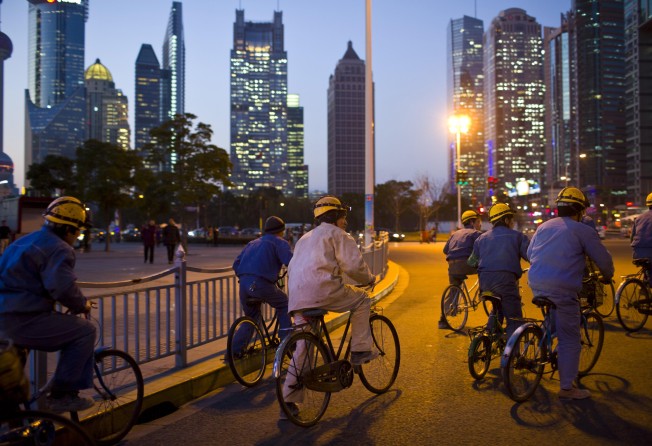
Stagnant growth adds to pressure for rebalancing of China's economy
Beijing's drive for structural economic reforms takes on greater urgency as GDP increase fails to improve on 2012, but avoids a 14-year low

Beijing may need to take action to stabilise the economy after growth last year narrowly avoided hitting a 14-year low.

The news dented share markets around the region as investors factored in the risk of slowing growth in the next 12 months. European markets barely moved.
While gross domestic product growth topped Beijing's official 7.5 per cent target, other data showed cooling factory growth, with industrial production rising 9.7 per cent last month against 10.3 per cent a year earlier.
That could complicate efforts to deepen structural reforms the leadership has said are vital to rebalance the economy. It wants to move away from exports and investment towards more sustainable domestic consumption.
But it may now be forced to rely on investment-driven policies to keep employment steady and incomes rising.
"Investment growth is likely to maintain steady progress as China pushes forward urbanisation, expands infrastructure building in the central and western regions, continues with shabby-town reform and develops energy-saving and environment-protecting industries," Ma said.
A continued reliance on investment poses a dilemma for the leadership, which must keep growth steady while cutting the excess industrial capacity blamed for a worsening pollution problem. It must also try to reduce the financial risks stemming from massive local government borrowing that stood at 17.9 trillion yuan (HK$22.8 trillion) at the end of last June.
The bureau also revealed the working-age population, those from 15 to 59, continued to decline - by 2.44 million to 920 million. As late as 1982, the proportion of the population aged 60 or over was just five per cent but it now stands at 14.9 per cent.
On the face of it, the government is doing worse than a year ago, with the contribution to growth from consumption falling almost two percentage points last year, while investment's contribution jumped four points.
Economists at BNP Paribas said the long-awaited rebalancing may be beginning to be seen, with a clear acceleration of service industry growth versus heavy industry last year.
Analysts reckon the need for economic reform is becoming more urgent, but that it will come at a cost of slower growth, even though many expect a 7.5 per cent target again this year.
Additional reporting by Agence France-Presse